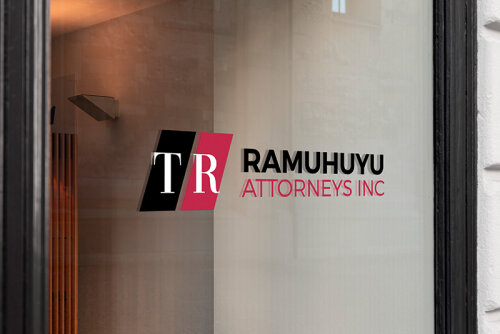Best Arrests & Searches Lawyers in Thohoyandou
Share your needs with us, get contacted by law firms.
Free. Takes 2 min.
List of the best lawyers in Thohoyandou, South Africa
About Arrests & Searches Law in Thohoyandou, South Africa
Arrests and searches are critical aspects of criminal procedure in Thohoyandou, South Africa, regulated mostly by South African constitutional and statutory laws. These legal frameworks aim to balance the enforcement of law and the protection of individual rights. The Constitution of South Africa establishes the right to personal freedom, implying that arrests and searches should be conducted reasonably and lawfully. The Criminal Procedure Act of 1977 lays down specific protocols officers must follow during arrests and searches to ensure that they are conducted fairly and without violating an individual's privacy and rights.
Why You May Need a Lawyer
There are various circumstances under which consulting a lawyer specializing in arrests and searches could be essential. If you are detained, arrested, or if your property is searched by law enforcement, a lawyer can provide crucial guidance. A legal expert can help ascertain whether the procedures were conducted lawfully and can challenge any potential violations of rights. Additionally, if you face criminal charges, a lawyer will assist in crafting a defense, ensuring your rights are protected, and advocating for you in court.
Local Laws Overview
The local laws in Thohoyandou adhere to national legal standards but may have specific nuances depending on local judicial interpretations. Key aspects include the necessity for police to have probable cause or a warrant when conducting arrests and searches unless in exceptional conditions such as witnessing a crime in progress. The legislation also mandates clear communication of rights upon arrest, including the right to remain silent and the right to legal representation. Unreasonable searches and seizures are constitutionally prohibited, emphasizing the protection of private property and personal freedom.
Frequently Asked Questions
What constitutes a legal arrest in Thohoyandou?
A legal arrest must be based on probable cause or a warrant issued by a competent authority, and it should follow proper procedure, including informing the individual of the reasons for the arrest and their rights.
Can police officers search my property without a warrant?
Police generally require a warrant to search property unless there is an immediate threat to safety, risk of evidence destruction, or if consent is given by the property owner.
What should I do if I am arrested?
If arrested, remain calm, comply with instructions, and clearly express your desire to speak with a lawyer. Avoid making statements until consulting your legal representative.
Am I obligated to answer police questions during a stop?
You have the right to remain silent and are not required to answer questions beyond providing basic identification unless you have consulted with a lawyer.
What are my rights during a search?
Your rights during a search include the right to see the search warrant, requesting officers' identification, and preventing excessive force or destruction of property.
How long can I be held in custody without being charged?
The law typically allows for detention up to 48 hours without charge, after which official charges must be made or you should be released.
Can evidence obtained through an illegal search be used against me?
Evidence obtained through methods that violate your rights can be contested and potentially deemed inadmissible in court, though legal advice is crucial in such scenarios.
What should I do if I believe my rights were violated during an arrest or search?
Document the incident as comprehensively as possible and seek legal advice to explore the possibility of filing a formal complaint or legal action.
Can I voluntarily consent to a search?
You can consent, but it’s advisable to consult legal counsel before doing so to understand the implications fully, as consenting waives certain legal protections.
Who can I contact for immediate legal assistance following an arrest?
Consider reaching out to local legal aid organizations, or a certified attorney specializing in criminal law to ensure prompt guidance and representation.
Additional Resources
Several resources and organizations can provide assistance related to arrests and searches in Thohoyandou, including:
- Legal Aid South Africa: Offers legal assistance to those who cannot afford private lawyers.
- South African Human Rights Commission: Can assist if you believe your rights were violated.
- Community Law Centres: Provide guidance and resources related to various legal issues, including arrests.
- Police Ombudsman: To handle complaints regarding police conduct.
Next Steps
If you require legal assistance due to an arrest or a search, promptly contact a lawyer specializing in criminal law. Gather all relevant information and documentation about the incident. Consult with legal specialists, such as those at Legal Aid South Africa, to understand your rights and options in detail. Prioritize swift action to ensure your rights are protected and any potential legal issues are effectively addressed.
Lawzana helps you find the best lawyers and law firms in Thohoyandou through a curated and pre-screened list of qualified legal professionals. Our platform offers rankings and detailed profiles of attorneys and law firms, allowing you to compare based on practice areas, including Arrests & Searches, experience, and client feedback.
Each profile includes a description of the firm's areas of practice, client reviews, team members and partners, year of establishment, spoken languages, office locations, contact information, social media presence, and any published articles or resources. Most firms on our platform speak English and are experienced in both local and international legal matters.
Get a quote from top-rated law firms in Thohoyandou, South Africa — quickly, securely, and without unnecessary hassle.
Disclaimer:
The information provided on this page is for general informational purposes only and does not constitute legal advice. While we strive to ensure the accuracy and relevance of the content, legal information may change over time, and interpretations of the law can vary. You should always consult with a qualified legal professional for advice specific to your situation.
We disclaim all liability for actions taken or not taken based on the content of this page. If you believe any information is incorrect or outdated, please contact us, and we will review and update it where appropriate.











